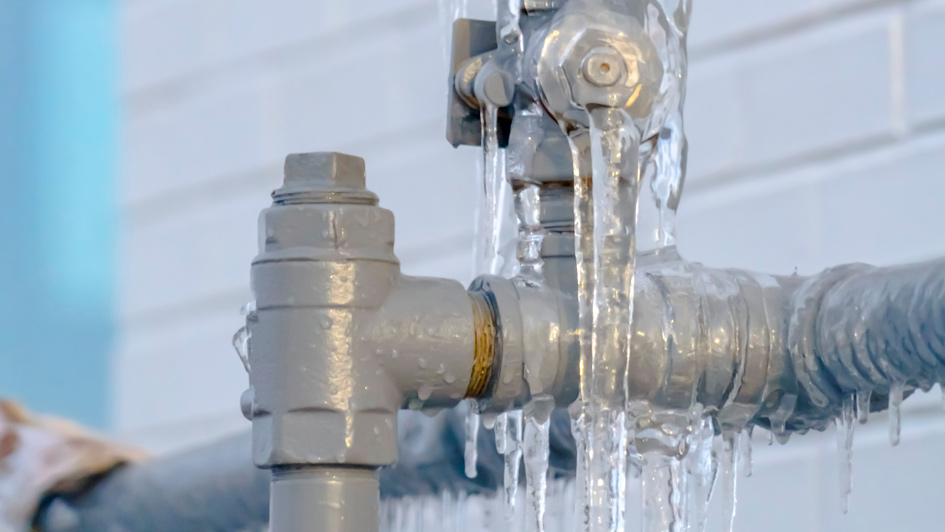
Snow-covered winter weather offers things like sledding down a nearby hill or snowball fights in the back yard. However, winter weather can be difficult on your home. Extremely cold conditions can cause the water lines in your home to freeze and burst, which may lead to significant water damage and enduring negative effects.
When your pipes are covered in ice, you may want to call a plumber in Moline to fix them. That being said, there’s a lot you can perform on your own to prevent this from happening – and even just a bit of prevention can go a long way.
What Pipes Are at More Risk of Freezing
The pipes at the highest risk of freezing are exposed water lines. Frequent locations for exposed pipes are inside attic crawlspaces, near exterior walls, in the basement or even running beneath a modular home. Water lines that are not correctly insulated are at the highest risk.
How to Stop Pipes from Becoming Frozen in Your Home
Properly insulating exposed water lines is a great first step to keeping your pipes free of ice. You’ll likely find most of these materials from your local plumbing company, and might also already have some somewhere in your home.
Be careful not to wrap up other flammable insulation materials where they might be caught on fire. If you don’t feel comfortable insulating the pipes by yourself, contact your local plumbing services professional in Moline to get the job done right.
If you do choose to insulate the pipes on your own, good insulation materials for pipes include:
- Wraps or roll insulation: Most plumbers, hardware stores and big box retailers sell insulation – usually fiberglass, foam wraps or pipe sleeves – that you can use to wrap or fit around your pipes. They are sold in various lengths and sizes to suit the needs of your home.
- Newspaper: In a pinch, newspaper can be used for insulation. If the weather is cooling down and you aren’t able to add insulation in time, try wrapping uninsulated pipes in this.
- Towels or rags: If you aren’t able to buy insulation and don’t have any newspaper close by, wrapping notably vulnerable pipes with towels or clean rags as a final effort could be just enough to keep the cold air off the pipes.
Another preventative step you can take to stop pipes from freezing in your home is to fill any cracks that could permit cold air into your home. Focus on the window frames, which can allow in surprisingly intense drafts. Not only will this help to prevent your pipes from freezing, but it will have the extra benefit of making your home more energy efficient.
Five More Ways to Keep Your Pipes from Freezing:
- Open the cabinet doors. Opening the cabinet doors underneath the sinks and other areas of your home with pipes will permit more warm air from the rest of the room to flow near the pipes.
- Letting water drip. Letting water flow by letting your faucets move even just a little can help thwart frozen pipes.
- Open interior doors. By opening doors between rooms or hallways, your home can be heated more consistently. This is especially important if you have a room that is frequently colder or hotter than other rooms.
- Close the garage door. The exception to the open doors advice is the garage door, which you should keep shut – especially if your water lines can be found near or under the garage.
- Keep the heat flowing. Experts recommend setting the thermostat at a uniform temperature and leaving it in place, rather than letting it get cooler at night. Set it no colder than 55 degrees.
How to Prevent Pipes from Freezing in an Unused Home
When you’re at home, it’s not difficult to recognize when something isn't right. But what extra steps can you try to keep pipes from freezing in a vacant home or vacation home when the damages from a frozen pipe might not be discovered for days or even weeks?
As with your primary residence, insulating any exposed water lines, opening interior doors in the home and winterizing the vacant home are the first steps to attempt first.
Alternative Steps to Keep Pipes from Freezing in an Unused Home:
- Leave the heat on. Even though you aren't currently using the home, it’s best to keep the heat on – even if you switch the thermostat down colder than you would if you were there. As with a primary home, experts recommend keeping the temperature at no lower than 55 degrees.
- Shut water off and drain the lines. If you’re going to be away for several weeks or are winterizing a seasonal cabin or cottage, turning the water off to the house and draining the water out of the water lines is one way to keep pipes from freezing and bursting. Remember to drain the water out of any appliances, such as the hot water heater, or the toilets. Make sure you clear out all the water from the pipes. If you're uncertain of how to clear out the water from the pipes, or don’t feel secure performing it yourself, a plumber in Moline will be delighted to help.




